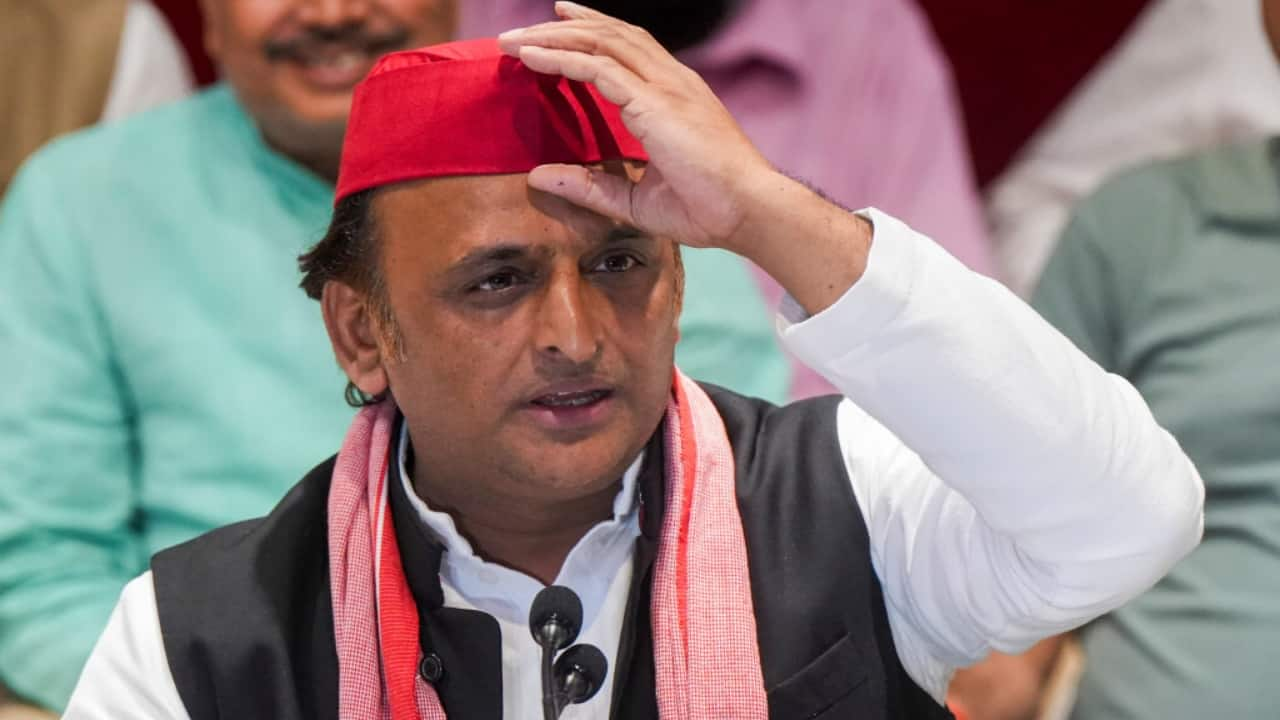For decades, the white segment of Pakistan’s flag — symbolic of its religious minorities — has borne the weight of systemic economic deprivation, social marginalization, and policy neglect. Yet, despite their indispensable contributions to education, healthcare, defence, and the economy, these communities have long been relegated to the fringes of opportunity. Under the visionary leadership of Chief Minister Maryam Nawaz Sharif, Punjab is now charting a new course — one that seeks to transform the plight of religious minorities into a narrative of empowerment and dignity.
In a landmark initiative, the Punjab government has introduced the Minority Card, a financial assistance programme designed to provide Rs 10,500 quarterly to financially struggling minority families. This direct aid aims to support at least 75,000 households, alleviating immediate economic hardships and promoting financial inclusion. But the programme’s impact extends far beyond mere monetary relief; it is a symbolic reclamation of rights that have been too long ignored.

The government’s commitment is further underscored by an unprecedented 60% increase in the annual development budget for minorities. This substantial boost is not only a response to urgent needs but also a clear message that economic justice will no longer be a distant dream for these communities. Festival grants, too, have been enhanced from Rs 10,000 to Rs 15,000, ensuring that cultural and religious celebrations can be observed with pride and dignity.
These measures, taken together, signal a transformative shift — a pivot from neglect to proactive inclusion. Education, often the most potent tool for societal change, has received renewed attention under this initiative. Current statistics paint a grim picture: only 3% of non-Muslim students progress to university-level education.
Recognizing this stark reality, the Punjab government has significantly expanded scholarships for minority students. By bridging the educational gap, the state is not merely investing in individual futures but is cultivating a generation that will be well-equipped to drive socioeconomic advancement and contribute meaningfully to national progress. The transformation is not limited to financial and educational reforms.
To tackle employment disparities, the government is enforcing the 5% job quota for minorities in government positions — a target that has historically languished below 2%. By mandating this quota, the current administration is making a bold statement: that diversity and representation are not optional but are integral to the fabric of governance. Additionally, specialized vocational training programmes are being rolled out to enhance employability among minority youth, ensuring they are not just participants but key contributors in the nation’s economic landscape.
But policy shifts alone cannot redress centuries of marginalization. Social change, too, is imperative. In a country where forced conversions and false blasphemy accusations have too often left minorities vulnerable, the government has initiated legal reforms to expedite justice and prevent such abuses.
The focus on streamlining Minority Card distribution and enhancing biometric verification systems is a testament to the commitment to transparency and efficiency — a commitment that extends to every facet of minority empowerment. International recognition further validates these bold measures. The British House of Lords recently acknowledged Punjab’s progressive steps, with Lord Alton of Liverpool hailing Chief Minister Maryam Nawaz Sharif’s leadership as “a symbol of hope for marginalized communities.
” Such accolades not only elevate Punjab’s standing on the global stage but also set a precedent for other provinces and, indeed, for the nation as a whole. If Punjab can transform its approach to minority rights, then the potential for a more inclusive Pakistan becomes not just a possibility, but an imperative. The paradigm is shifting.
For the first time, minority leaders are being appointed to key positions within the government. Provincial Minister for Minorities Ramesh Singh Arora, a prominent Sikh figure, now heads the Human Rights and Minorities Affairs Department. His presence in the corridors of power is a powerful symbol — a reminder that policy decisions must reflect the diverse tapestry of our society.
This inclusive approach, once a distant ideal, is rapidly taking shape, challenging the status quo and setting the stage for a truly progressive and harmonious Pakistan. Yet, despite these monumental strides, challenges remain. Critics argue that while financial aid and quotas are welcome, they must be part of a broader, sustained effort to address the deep-rooted inequities that have long plagued our society.
The vision must extend to comprehensive legislative measures—ensuring protection against forced conversions, enhancing economic participation, and increasing minority representation in policymaking at the national level. As former Prime Minister Nawaz Sharif once declared, Pakistan must become a “minorities-friendly country” — a pledge that now resonates with renewed urgency. The Minority Card initiative is more than a policy reform — it is an embodiment of dignity, opportunity, and justice.
It is a significant step toward realizing Quaid-e-Azam Muhammad Ali Jinnah’s vision of Pakistan as a pluralistic and inclusive nation. Under Chief Minister Maryam Nawaz Sharif’s steadfast leadership, Punjab is setting a new standard, one that challenges deep-seated prejudices and lays the foundation for a future where every citizen, regardless of faith, can thrive. As the winds of change sweep across Punjab, there is a palpable sense of hope — a belief that the future can be reshaped through bold actions and steadfast commitment.
If other provinces can follow Punjab’s example, then perhaps, one day soon, Pakistan will truly become a land where every minority not only survives but flourishes. The journey is long, but the vision is clear: a Pakistan that upholds the rights of all its citizens is not merely an aspiration, but a mandate for our time. Copyright Business Recorder, 2025.
Maryam’s vision for minorities

For decades, the white segment of Pakistan’s flag — symbolic of its religious minorities — has borne the weight of systemic economic deprivation, social marginalization, and policy neglect.Yet, despite their indispensable contributions to education, healthcare, defence, and the economy, these communities have long been relegated to the fringes of opportunity.Under the visionary leadership of Chief Minister Maryam Nawaz Sharif, Punjab is now charting a new course — one that seeks to transform the plight of religious minorities into a narrative of empowerment and dignity.In a landmark initiative, the Punjab government has introduced the Minority Card, a financial assistance programme designed to provide Rs 10,500 quarterly to financially struggling minority families.This direct aid aims to support at least 75,000 households, alleviating immediate economic hardships and promoting financial inclusion. But the programme’s impact extends far beyond mere monetary relief; it is a symbolic reclamation of rights that have been too long ignored.The government’s commitment is further underscored by an unprecedented 60% increase in the annual development budget for minorities. This substantial boost is not only a response to urgent needs but also a clear message that economic justice will no longer be a distant dream for these communities.Festival grants, too, have been enhanced from Rs 10,000 to Rs 15,000, ensuring that cultural and religious celebrations can be observed with pride and dignity. These measures, taken together, signal a transformative shift — a pivot from neglect to proactive inclusion.Education, often the most potent tool for societal change, has received renewed attention under this initiative. Current statistics paint a grim picture: only 3% of non-Muslim students progress to university-level education.Recognizing this stark reality, the Punjab government has significantly expanded scholarships for minority students. By bridging the educational gap, the state is not merely investing in individual futures but is cultivating a generation that will be well-equipped to drive socioeconomic advancement and contribute meaningfully to national progress.The transformation is not limited to financial and educational reforms. To tackle employment disparities, the government is enforcing the 5% job quota for minorities in government positions — a target that has historically languished below 2%. By mandating this quota, the current administration is making a bold statement: that diversity and representation are not optional but are integral to the fabric of governance.Additionally, specialized vocational training programmes are being rolled out to enhance employability among minority youth, ensuring they are not just participants but key contributors in the nation’s economic landscape.But policy shifts alone cannot redress centuries of marginalization. Social change, too, is imperative. In a country where forced conversions and false blasphemy accusations have too often left minorities vulnerable, the government has initiated legal reforms to expedite justice and prevent such abuses.The focus on streamlining Minority Card distribution and enhancing biometric verification systems is a testament to the commitment to transparency and efficiency — a commitment that extends to every facet of minority empowerment.International recognition further validates these bold measures. The British House of Lords recently acknowledged Punjab’s progressive steps, with Lord Alton of Liverpool hailing Chief Minister Maryam Nawaz Sharif’s leadership as “a symbol of hope for marginalized communities.” Such accolades not only elevate Punjab’s standing on the global stage but also set a precedent for other provinces and, indeed, for the nation as a whole. If Punjab can transform its approach to minority rights, then the potential for a more inclusive Pakistan becomes not just a possibility, but an imperative.The paradigm is shifting. For the first time, minority leaders are being appointed to key positions within the government. Provincial Minister for Minorities Ramesh Singh Arora, a prominent Sikh figure, now heads the Human Rights and Minorities Affairs Department. His presence in the corridors of power is a powerful symbol — a reminder that policy decisions must reflect the diverse tapestry of our society.This inclusive approach, once a distant ideal, is rapidly taking shape, challenging the status quo and setting the stage for a truly progressive and harmonious Pakistan.Yet, despite these monumental strides, challenges remain. Critics argue that while financial aid and quotas are welcome, they must be part of a broader, sustained effort to address the deep-rooted inequities that have long plagued our society.The vision must extend to comprehensive legislative measures—ensuring protection against forced conversions, enhancing economic participation, and increasing minority representation in policymaking at the national level. As former Prime Minister Nawaz Sharif once declared, Pakistan must become a “minorities-friendly country” — a pledge that now resonates with renewed urgency.The Minority Card initiative is more than a policy reform — it is an embodiment of dignity, opportunity, and justice. It is a significant step toward realizing Quaid-e-Azam Muhammad Ali Jinnah’s vision of Pakistan as a pluralistic and inclusive nation. Under Chief Minister Maryam Nawaz Sharif’s steadfast leadership, Punjab is setting a new standard, one that challenges deep-seated prejudices and lays the foundation for a future where every citizen, regardless of faith, can thrive.As the winds of change sweep across Punjab, there is a palpable sense of hope — a belief that the future can be reshaped through bold actions and steadfast commitment. If other provinces can follow Punjab’s example, then perhaps, one day soon, Pakistan will truly become a land where every minority not only survives but flourishes. The journey is long, but the vision is clear: a Pakistan that upholds the rights of all its citizens is not merely an aspiration, but a mandate for our time.Copyright Business Recorder, 2025














